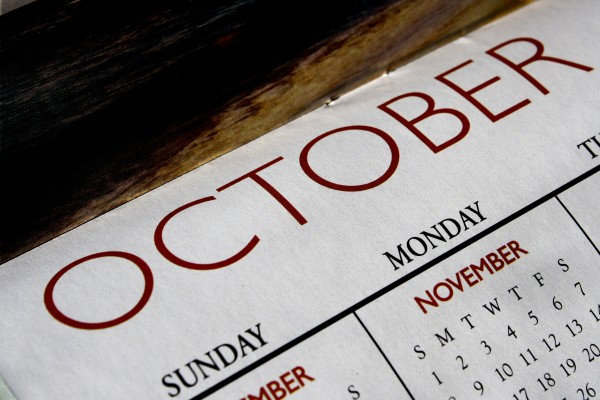The Lilith Blog 1 of 2
October 3, 2014 by Helene Meyers
Jewish Calendar Talk

http://www.photos-public-domain.com
My high-school educated mother came of age in the days when “gentleman’s agreements” limited Jews’ access to higher education, housing, and the professions. One of her formative experiences was an interview at what we would now call a major telecommunications corporation. A clerical position with a decent salary, benefits, even vacation, it was a “good job” for a woman with limited education. However, there was one catch: she had to work on Rosh Hashanah and Yom Kippur. She didn’t have a great deal of formal education but she was no dummy–she knew that this was a less than subtle way to keep Jews out of that particular workplace. Having been raised in an Orthodox household, she also knew that the choice offered was no choice at all.
We rightfully celebrate that Jews now have full access to higher education, housing, and the professions. But I wonder if we fully appreciate how, at the holiest time of the Jewish year, Jews are still routinely, subtly and powerfully required to make choices between their Jewishness and their wholesale belonging in various professional, communal, and organizational worlds. Look at all sorts of calendars (and our rationalizations for them) and you have an important Jewish story in the 21st Century.
One place to start might be an international body, the United Nations. For some odd reason, the Jewish High Holidays are not on their list of official holidays. Of course, Christmas and Good Friday grace that list; Eid al-Fitr and Eid al-Adha were happily and rightfully added in 1998.
This year, the Susan K. Komen Foundation scheduled its Houston run against breast cancer on Yom Kippur. Both The Jewish Telegraphic Agency and Haaretz are reporting that the foundation has apologized for the conflict, even as it acknowledged that this year’s scheduling snafu has been on the radar for five years. Apparently, it couldn’t seem to sync the city’s calendar, the Jewish calendar, and its own “needs.” One wonders about the sincerity of an apology for taking five years NOT to correct a scheduling problem. To add irony to insult, Susan K. Komen was, according to the Houston Chronicle, “an observant Jew.”
Several years ago, the San Francisco Public Library chose Yom Kippur as the day to host a celebration of the life and work of Gloria Anzaldúa, a Latina activist/theorist of blessed memory to a multitude of feminists. Anzaldúa’s groundbreaking work on spiritual activism and her profound commitments to coalition politics made the scheduling of this event particularly unfortunate. The feeble attempt to accommodate Jewish feminists was worthy of a Jon Stewart segment: “If you cannot attend –we apologize to those who can’t come due to Yom Kippur–please think about writing a brief statement, to be read at the event, regarding the significance of Gloria in your life &/or work & submitting it to Randy as soon as possible at . . . (don’t worry if you’re at first blocked by SpamBlocker).”
The academic world, which I know intimately and which could be teaching deep respect for and understanding of religious difference, often models worst practices and hypocrisy. When alumni events that tout a curriculum committed to cultural diversity are scheduled on Yom Kippur, when lectures on pedagogical innovation are given on Rosh Hashanah, when religious studies professors need to be informed that some Jews observe Rosh Hashanah for two days, when an art institute opens an exhibition devoted to “faith and community” on Rosh Hashanah, when university communities are encouraged to parse policy to determine which events can and can’t be held on Jewish High Holy Days rather than being encouraged to understand diverse religious traditions and their organization of time, then Jews rightly wonder whether choosing to be a practicing or semi-practicing Jew is still a subtle liability.
The consequences of my choices are much less dire than those foisted on my mother, and I am profoundly grateful for the opportunities that I have as a Jewish feminist in 2014. But there are those “click” moments when I look at a calendar and wonder if we have come as far as we think.
Helene Meyers is Professor of English and McManis University Chair at Southwestern University. She is the author, most recently, of Identity Papers: Contemporary Narratives of American Jewishness and is working on a book about Jewish American cinema.
 Please wait...
Please wait...